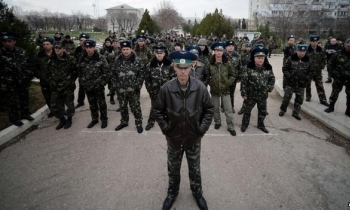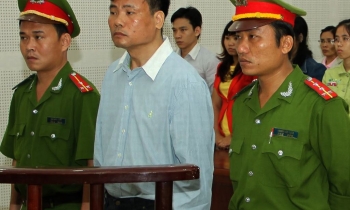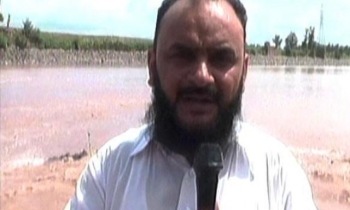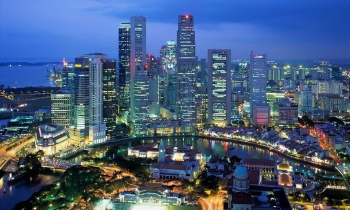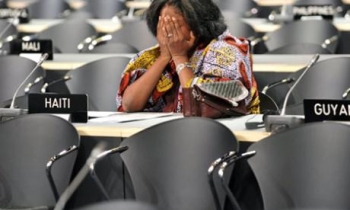A Ukrainian court has convicted three former police officers of killing an investigative journalist nearly eight years ago. The verdict Saturday in Ukranian capital Kiev ended a high-profile trial—but one the family of the journalist, Heorhiy Gongadze, says has failed to bring the masterminds to justice, the Associated Press (AP) reported.
Mykola Protasov was sentenced to 13 years in jail. Valeriy Kostenko and Oleksandr Popovych each received 12-year sentences. The trial has been running since January 2006, mainly behind closed doors.
Paris-based Reporters sans Frontières (RSF) hailed this outcome, but regretted that those who gave the others for Gongadze’s murder still have not been identified.
“We are obviously pleased with this verdict,” RSF said. “But justice has not yet been fully rendered in the Gongadze case, which shook the nation. The instigators of this murder have still to be identified and punished. The conviction of the three people who carried it out should not be taken to mean the investigation is over.”
Valentina Telychenko, a lawyer for Gongadze's family, said the trial and verdict did not go far enough. "Gongadze's wife and mother have repeatedly said that they will insist on further investigations to identify those that ordered the murder," Telychenko told AP.
Gongadze crusaded against official corruption. His killing triggered months of protests after Mykola Melnychenko, a former bodyguard of then-President Leonid Kuchma, released tapes on which a voice resembling Kuchma's is heard conspiring with others against the journalist.
Gongadze's beheaded body was found in a forest outside Kiev in November 2000. Investigations have failed to identify those who ordered the killing.
More from the AP report:
Oleksiy Pukach, the former chief of the Interior Ministry's surveillance department where the three defendants served, is also wanted for the murder and is being sought on an international warrant.
Protasov's lawyer, Viktor Chevguz, said the sentence was excessively harsh and failed to recognize the role played by Pukach, who the defendants claim killed Gongadze by strangling him with his belt, according to AP. "The court should have considered that the defendants were completely subordinate to Pukach," Chevguz said.
Many Ukrainians have looked upon the Gongadze case as a test for the government of pro-Western President Viktor Yushchenko, who swept to power in the Orange Revolution in 2004, AP commented. Yushchenko has come under harsh criticism from human rights groups for failing to solve the crime.
Prime Minister Yulia Tymoshenko said earlier last week it was regrettable that the trial, which has lasted more than two years, had not revealed the identity of the masterminds. "I am really sorry that our justice is so selective. But this is not the end of the story," she said.
Gongadze's widow, Myroslava, and her two children received political asylum in the United States and have lived there since 2001.
In September 2000, Gongadze got into what he thought was a taxi, and was then joined by three others and driven outside Kiev, according to the defendants. He was beaten and strangled, his body doused with gasoline and burned. Experts said Gongadze was decapitated after his death. Numerous tests have concluded the remains are Gongadze's. His head has not been found.
The Agence France-Presse (AFP) report had some other details:
Those who accuse Kuchma of involvement in the killing point to about 700 hours of recordings said to have been made in secret in his office by a former presidential bodyguard, Mykola Melnichenko.
They were released by leading socialist Olexander Moroz, sparking months of protests as Ukrainian citizens demanded the removal of the head of state, which ultimately paved the way for the change of regime in late-2004. In the recordings, a voice resembling Kuchma's says that the journalist should be kidnapped by Chechens or taken somewhere and "stripped naked".
The bodyguard, who fled to the United States shortly after releasing the tapes five years ago, returned to Kiev to answer prosecutors' questions but a parliamentary commission ruled the recordings' authenticity could not be proved.
While the evidence was ruled inadmissible, the commission nevertheless implicated Kuchma, although the former president has always denied any involvement or knowledge of the circumstances surrounding the death. The investigation into the killing was hampered by the suicide last March of a key witness, former interior minister Yury Kravchenko, whose voice is one of those on the incriminating tape recordings.

